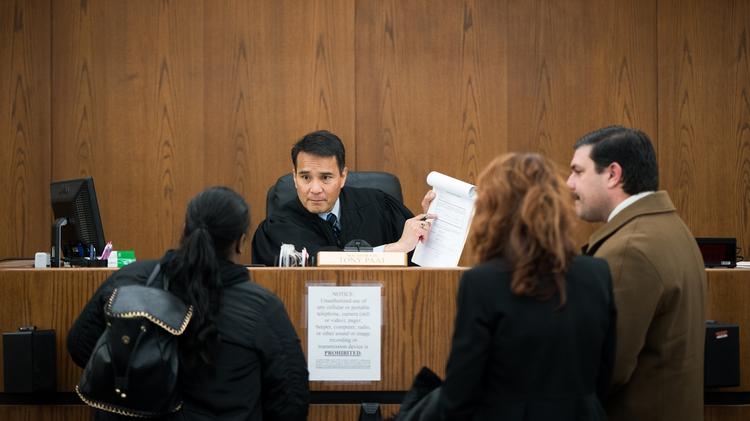Here are the 10 things every rental property manager should know.
1) Technology Is the Key to Success
If you aren’t using rental property manager software, you probably won’t make it far in the US rental market 2020. Honestly, the use of technology in a property management company is no longer a luxury but is now a necessity. Today, there are tools and digital real estate resources that rental property managers can use to their advantage. You can find a less time-consuming and more efficient way for almost every aspect of the job.
I’ll let you in on something the most successful property managers do. They’ve realized how big of a role technology plays in property management and now run all of their operations through one platform. As a rental property manager, there’s a lot of paperwork involved in the work you do. Whether it be from collecting rent payments, drafting leases, or paying maintenance fees, if you haven’t digitized this info, the paperwork will pile up and become difficult to manage. You can also set up some sort of portal on your website to make communication between you, the property owners, and the tenants run smoothly.
2) Property Management Marketing Is Evolving
As the industry changes every day, the way the business functions and the best practices involved change as well. One of the best developments we’ve seen is how to get more property management clients. A lot of residential property managers today have adapted their marketing strategies to attract more property owners to be potential clients. The latest strategies are- you guessed it- digital.
The process of finding and qualifying property management leads can be strenuous and time-consuming. But it’s a nonstop task of becoming a property manager. For your business to grow, your client base must grow. To do that, you need to have an attractive marketing strategy in place. A lot of managers today are generating traffic to their business through social media posts, blog pages, youtube videos, and more. An online presence has become vital for the success of rental property managers as this leads to a level of exposure you otherwise wouldn’t reach. After generating all this traffic to your business and website, you need a way to differentiate the customers from the serious real estate leads.
Our algorithm can instantly qualify leads and let you know which real estate investors and owners are ready to start a rental property business, expand, and hire a property manager. You can confidently match them with the best type of investment property, as you can compare Airbnb vs long-term rentals, and even find off-market properties with our platform.
3) The Importance of Delegating Authority to Your Team
Sometimes it reaches a point where you can no longer take on the responsibility of managing multiple rental properties. Good property management means putting together a reliable property management team. Most of the people you hire will have to take on some form of responsibility and be in charge of specific tasks. Bookkeeping, tenant screening, marketing, rental billing, and maintenance are all tasks you could be delegating to members of your team. Hire people with the same attitude and efficiency as you. This way you’ll be confident in their abilities to get the job done.
4) The Responsibilities of Being a Rental Property Manager
I just very quickly went over the fact that you should lighten your workload by delegating tasks to other members of your property management team, but are you sure you know all of the tasks involved in this profession? It’s important for every rental property manager to know what’s expected from him or her. If you’ve been in the game for a while now, you’ve probably got this on lockdown, but if you’re just starting out, let’s go over a refresher.
How to be a property manager? By following these main responsibilities:
- Screening tenants
- Setting rent and collecting rent
- Scheduling regular property maintenance checks
- Maintaining records
- Supervising rental properties and other employees
You ultimately want to make sure that all of the rental properties you’re managing are positive cash flow properties.
5) A Lawyer Can Draft the Rental Lease Agreement
There are landlord-tenant laws set in every state, and usually, they lean to favor one side over the other. As a property manager, you’d want to aim for the landlord-friendly states, as these will ultimately make legal proceedings much easier for you. While every rental property manager should know the landlord-tenant laws applied in their state, hiring a lawyer to help with things like rental agreements is recommended. Hiring a legal professional to either put the rental agreement together for you or to just review the lease you prepared is the best way to protect yourself from any potential tenant fallouts.
6) Property Management Industry Trends Are Always Changing
This is a big-scale thing to remember. This is a fast-paced industry with new factors coming in and out of play constantly. Stay updated on the latest news in the business and what’s in demand, keep an eye out for the competition, and don’t stop working on yourself. If there are new amenities (like smart appliances) that are becoming the new standard, you need to take this into consideration. The services you offer should follow the new things viewed as necessary for a rental unit by tenants. For example, some tenants today won’t move into a rental unit that doesn’t offer electronic rent payment services. As a rental property manager looking to succeed, I recommend you stay updated on real estate market trends, maybe perform a real estate market analysis, and talk to your own clients and tenants to find out what they expect.
7) A Positive Attitude Goes a Long Way
You’ll be bound to face some issues as a rental property manager. But the important thing to remember is that this is a normal part of the job. There’s no such thing as perfect, and if you want to succeed in this business, you need to be prepared for any issues and face them with a positive attitude. If you let one wrong thing bring you down, it’ll really be a damper on the rest of your operations. You also want to reflect this attitude in your interactions with clients and tenants.
8) Update Your Rental Units
Regular maintenance checks will let you know which parts of your rental property are operating properly and which areas might have room for improvement. First off, the most important thing is to make sure all the rental properties you manage are up to the health and safety codes. Avoid falling into complacency by staying up to date on any changes to building trends and regulations for these income properties. You should also be able to spot any problems before they represent serious issues and budget changes. If there are any utilities or appliances which can be updated for higher tenant satisfaction, go for it.
9) Organization Makes Everything Easier
One of the most important property management skills is organizational skills. Having organizational and planning skills will really help you progress in your career. Start applying some more organized methods. Set up a well-defined process for routine tasks and a protocol for expected tenant concerns and complaints. Running operations smoothly is easy this way, and you’ll have an efficient and effective business strategy.
10) Networking with Other Rental Property Managers Helps
There are so many forums and associations you can join. They’ll help you get to know other professionals operating in the real estate market. Networking is a key part of being a successful rental property manager and furthering your career. You won’t just get your name out this way, but you’ll also learn and gain some advice from other property managers. A great place to start is LinkedIn. Form some relationships with other people in the industry and learn new ideas, marketing strategies, business practices, and more.







 “Just as our Black neighbors experience violence in policing, they also experience the violence of displacement, of eviction, of housing discrimination,” said Council Member Mitra Jalali. “This housing agenda will insure stability for all St. Paul renters, especially the thousands of Black, brown, Asian, Latino, Indigenous and other working families of color.”
“Just as our Black neighbors experience violence in policing, they also experience the violence of displacement, of eviction, of housing discrimination,” said Council Member Mitra Jalali. “This housing agenda will insure stability for all St. Paul renters, especially the thousands of Black, brown, Asian, Latino, Indigenous and other working families of color.”









